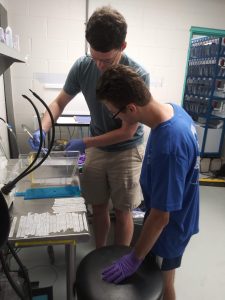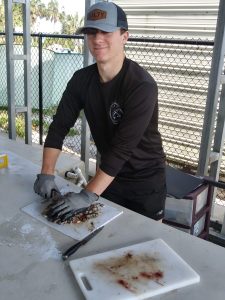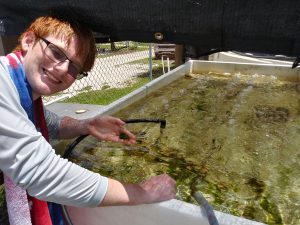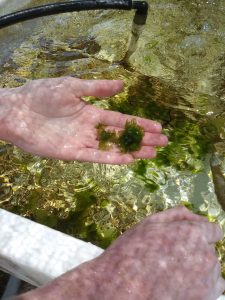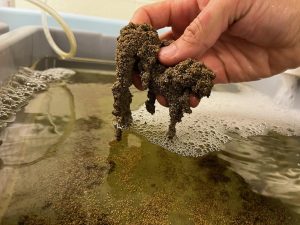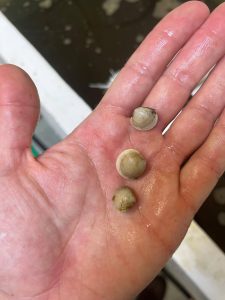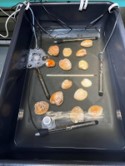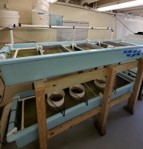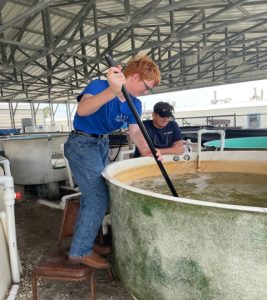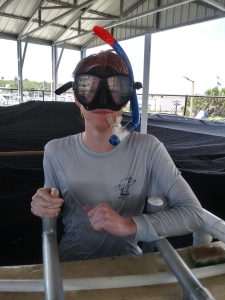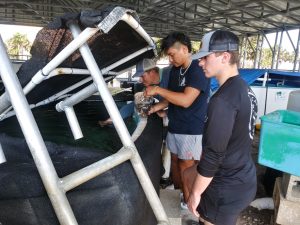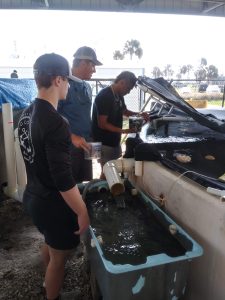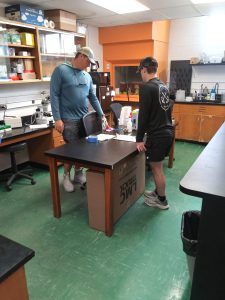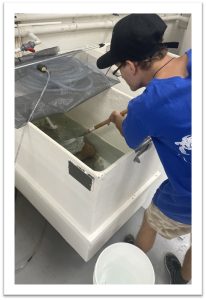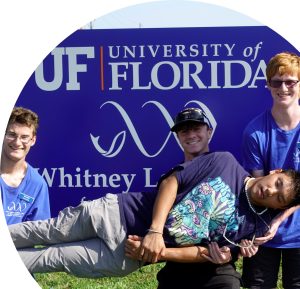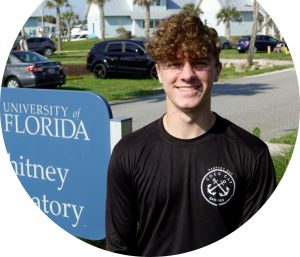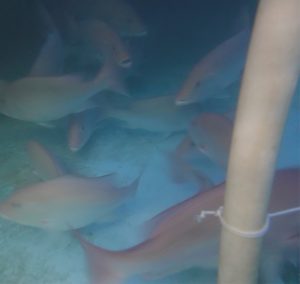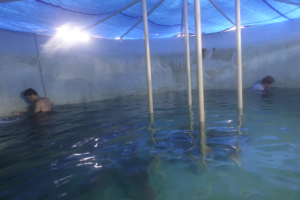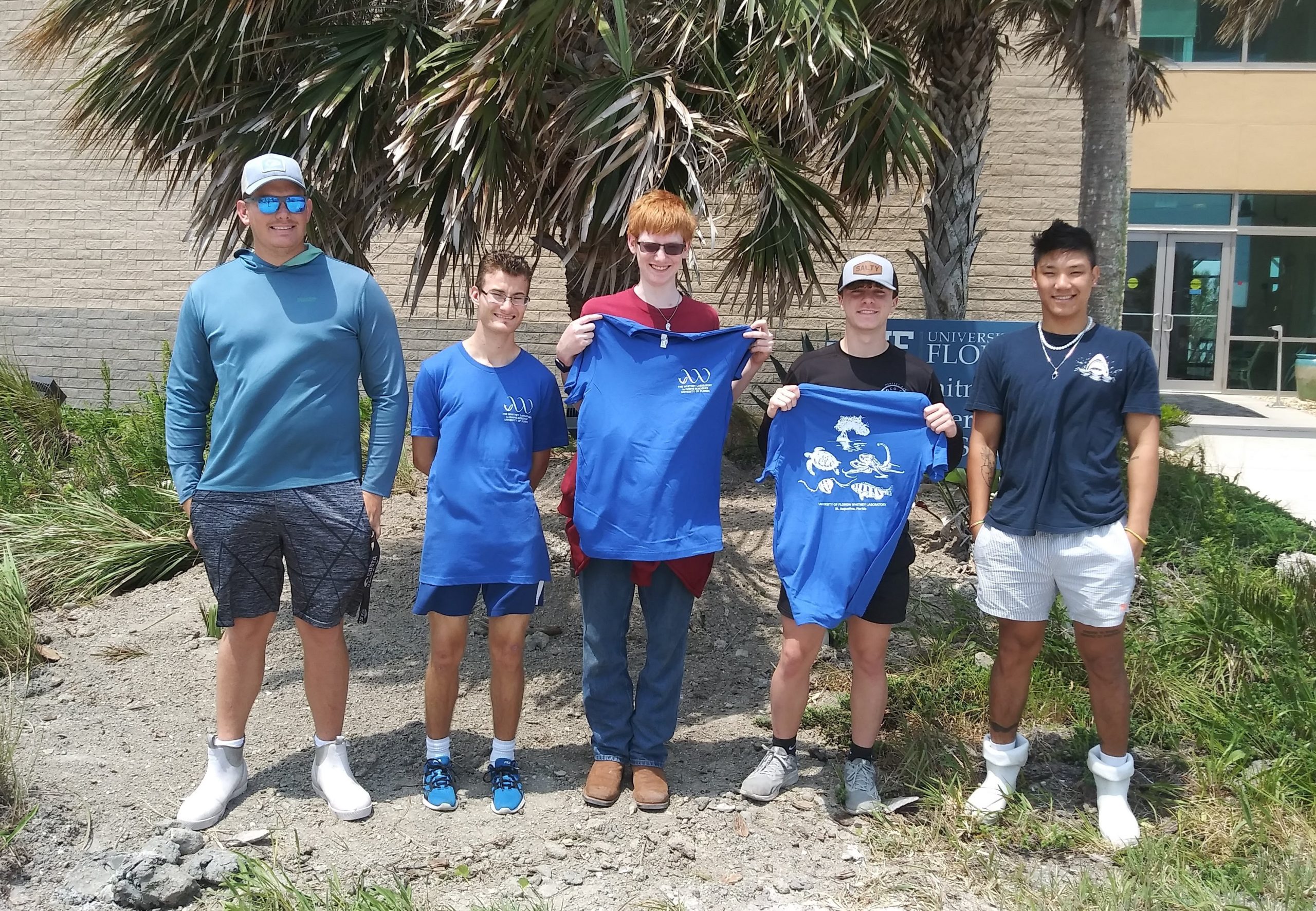Shortly after the school year began and the Academy of Aquaculture embarked on its first year, Dr. Leonardo Ibarra-Castro Assistant Professor in Aquaculture at the Whitney Laboratory of Marine Bioscience, joined the advisory board and proposed several learning opportunities for our students, including hosting summer internships. His involvement led to the placement of three 11th graders from St. Johns Technical High School (SJTHS). Starting in June, interns reported twice a week to the Whitney Laboratory in Marineland to learn hands-on from scientists and staff conducting marine fish, clam and algae reproduction research. When the internships wrapped up in late July, interns calculated their earned community service hours and documented their experiences that were later shared through presentations with the Whitney Laboratory team, the SJTHS Academy of Aquaculture advisory board, and the interns families. Below are excerpts from their presentations.
“This internship was very interesting and rewarding working with the crew. I will have great memories of what I learned at Whitney Lab. I would like to pursue HVAC (Heating, Ventilation, Air Conditioning) for my career. If it doesn’t work out for me in HVAC classes at FCTC, I would like to do aquaculture again with the Whitney Lab.” – Roland
“A goal after this internship is helping my school with their new Aquaculture Academy by gaining more knowledge about the industry while also using the skills and information I learned at my internship. The internship guided me on what I want to do after high school.” – Griffin
“The internship helped me prepare for the future by gaining experience that I can use on a real job. I plan on enrolling at First Coast Technical College in the Nursery Management program in order to get the certification as a Certified Horticulture Professional. I will also be studying for my Aquaculture Technician certification from the Florida Aquaculture Association. I want to work in the Agriculture field.” – Chase
Skills Students Learned
- Various species of marine life
- Water quality
- Maintenance and care of aquatic systems
- Clam hatchery operations
- Macroalgae table project
- Biosecurity measures
- Data recording – feeding logs
- Production of medicines and vitamins
- Specialized feeding and supplements for each fish
- Nutrition operation costs
- Population restoration
- Commercial farming
- Early life development research
